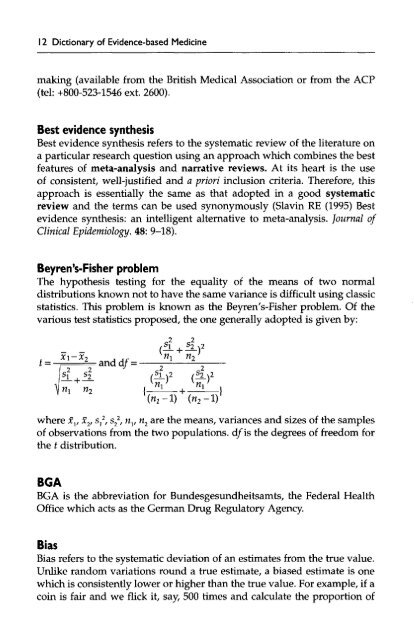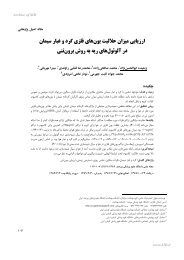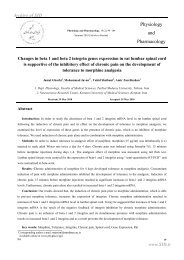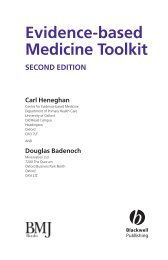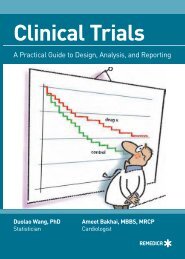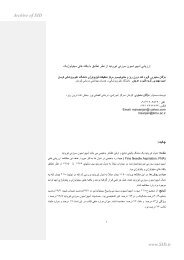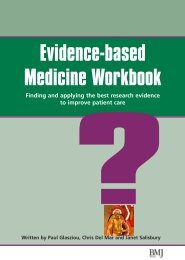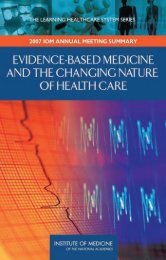Dictionary of Evidence-based Medicine.pdf
Dictionary of Evidence-based Medicine.pdf
Dictionary of Evidence-based Medicine.pdf
You also want an ePaper? Increase the reach of your titles
YUMPU automatically turns print PDFs into web optimized ePapers that Google loves.
12 <strong>Dictionary</strong> <strong>of</strong> <strong>Evidence</strong>-<strong>based</strong> <strong>Medicine</strong><br />
making (available from the British Medical Association or from the ACP<br />
(tel: +800-523-1546 ext. 2600).<br />
Best evidence synthesis<br />
Best evidence synthesis refers to the systematic review <strong>of</strong> the literature on<br />
a particular research question using an approach which combines the best<br />
features <strong>of</strong> meta-analysis and narrative reviews. At its heart is the use<br />
<strong>of</strong> consistent, well-justified and a priori inclusion criteria. Therefore, this<br />
approach is essentially the same as that adopted in a good systematic<br />
review and the terms can be used synonymously (Slavin RE (1995) Best<br />
evidence synthesis: an intelligent alternative to meta-analysis. Journal <strong>of</strong><br />
Clinical Epidemiology. 48: 9-18).<br />
Beyren's-Fisher problem<br />
The hypothesis testing for the equality <strong>of</strong> the means <strong>of</strong> two normal<br />
distributions known not to have the same variance is difficult using classic<br />
statistics. This problem is known as the Beyren's-Fisher problem. Of the<br />
various test statistics proposed, the one generally adopted is given by:<br />
where x v x v s 2 2 , s 2 2 , n v n 2 are the means, variances and sizes <strong>of</strong> the samples<br />
<strong>of</strong> observations from the two populations, d/is the degrees <strong>of</strong> freedom for<br />
the t distribution.<br />
BGA<br />
BGA is the abbreviation for Bundesgesundheitsamts, the Federal Health<br />
Office which acts as the German Drug Regulatory Agency.<br />
Bias<br />
Bias refers to the systematic deviation <strong>of</strong> an estimates from the true value.<br />
Unlike random variations round a true estimate, a biased estimate is one<br />
which is consistently lower or higher than the true value. For example, if a<br />
coin is fair and we flick it, say, 500 times and calculate the proportion <strong>of</strong>


